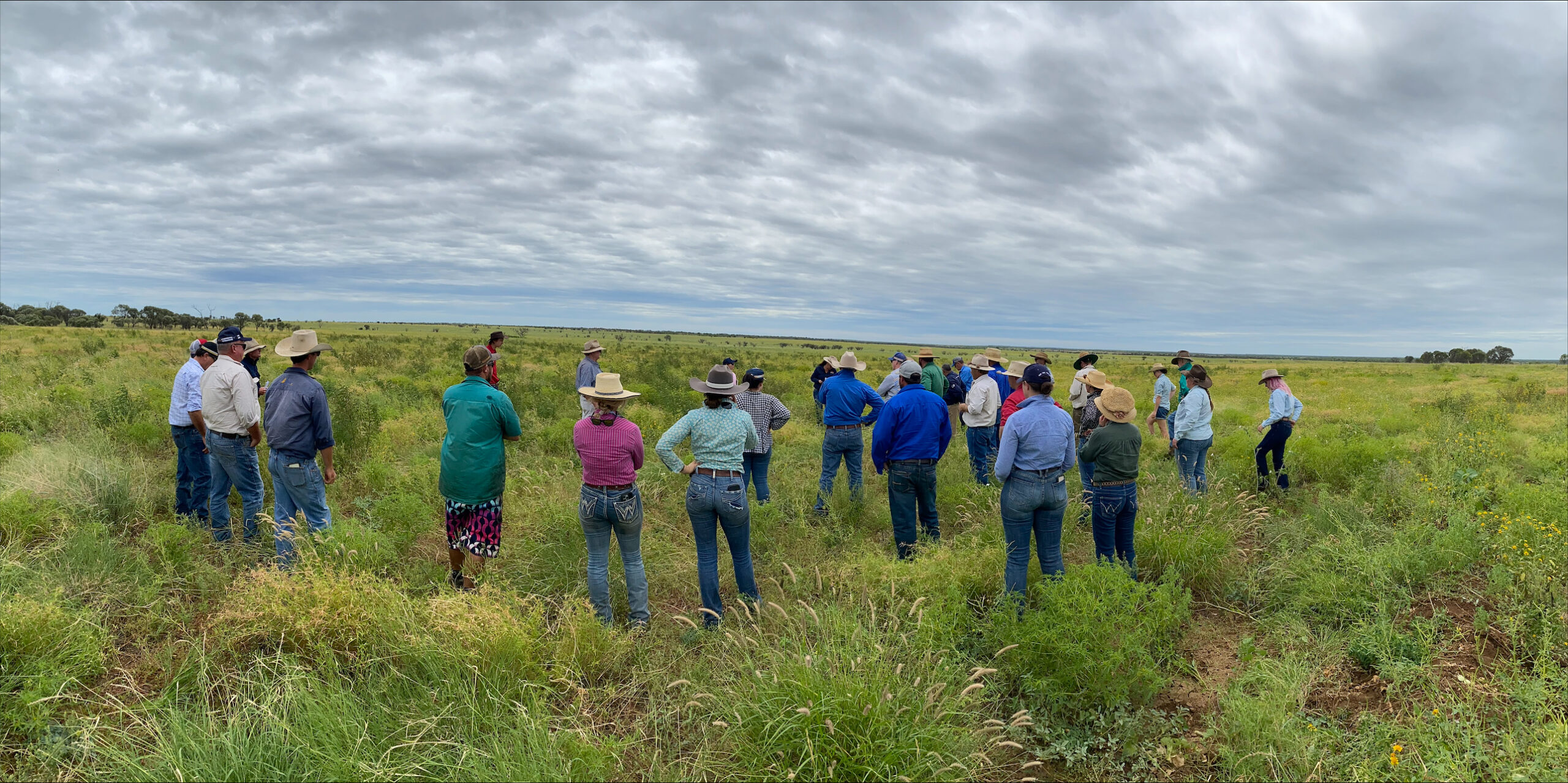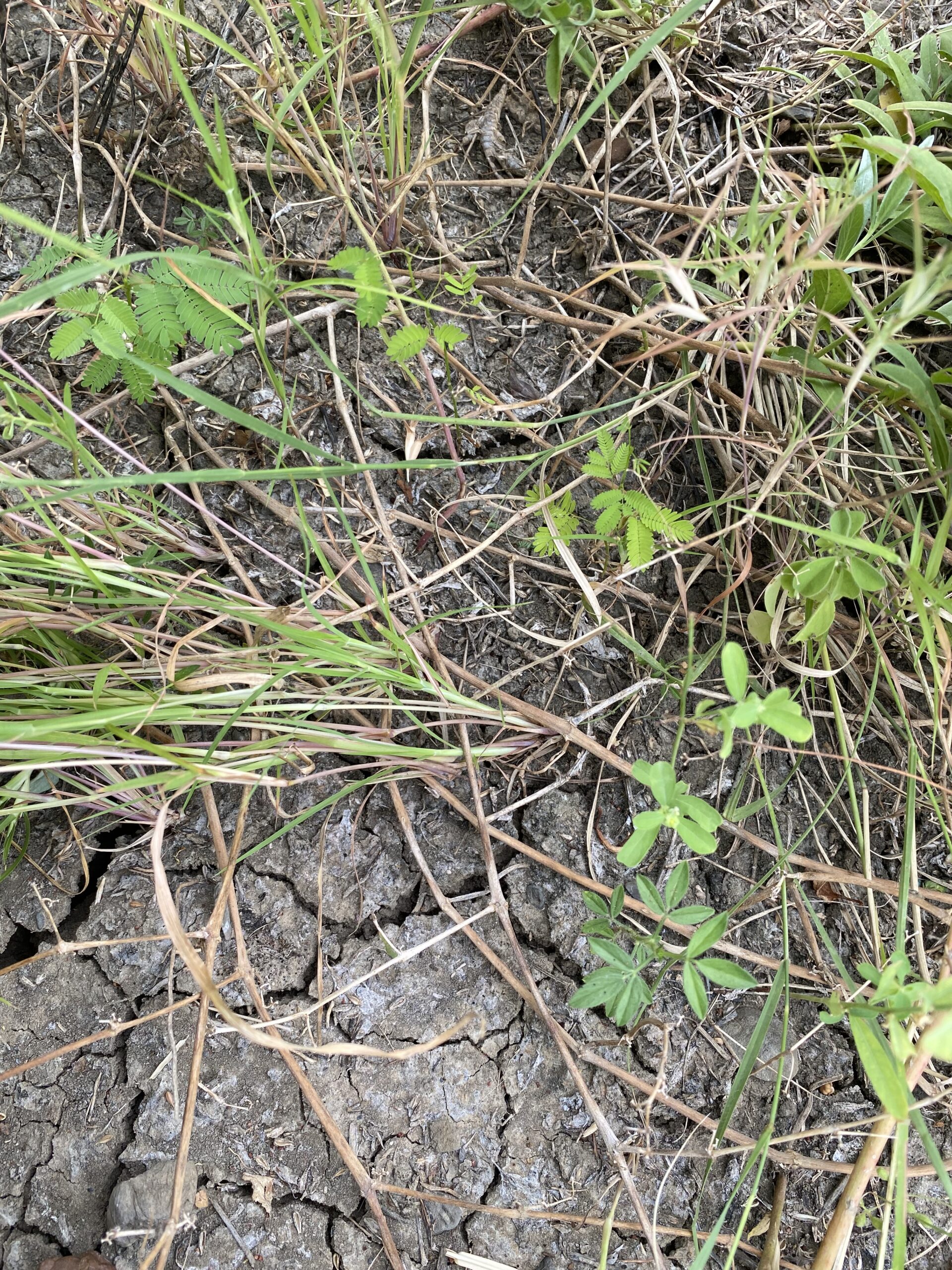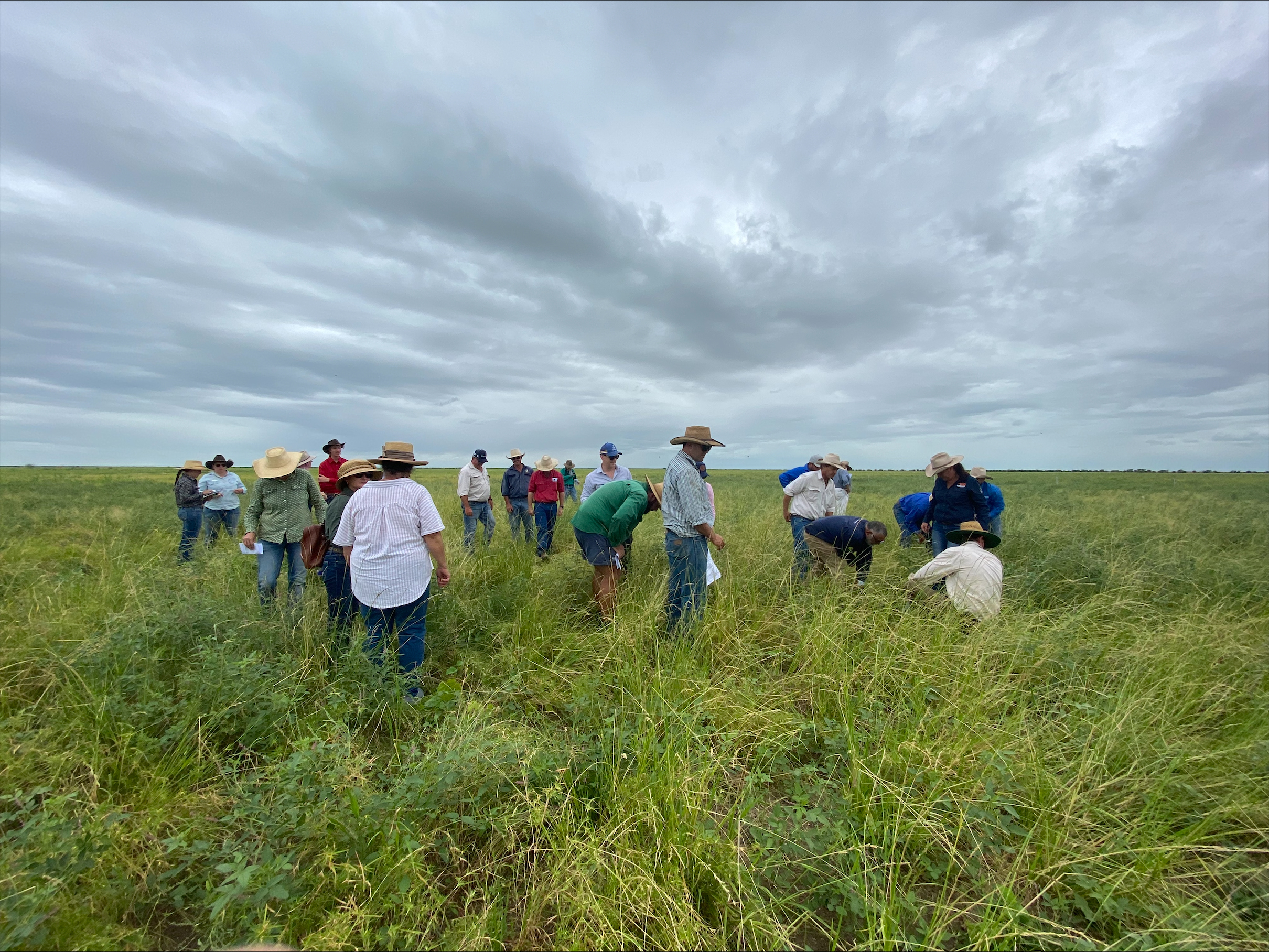The Northern Downs gets down to business
The North Queensland Pasture Resilience Program (NQ PRP) team held a combined pasture legume field day in Richmond on the 19th March. The day was run collaboratively between the Department of Agriculture and Fisheries (DAF), and the University of New England (UNE). The NQ PRP team are working with producers in Richmond and Julia Creek to test legume establishment options on flood-affected country. While establishing legumes in environments with less than 700 mm average annual rainfall can be difficult, the field day showcased the successes and learnings at a two test sites in the Richmond district.
Covering off on all things pastures, the field day also focussed on grazing land management as well as planning and preparation for planting improved pastures in the north west. With the possibility of late season rainfall in the air, a group of 24 producers visited two properties on the day. First up was ‘Yan Yean’, looking at UNE’s legume establishment trial, where different methods of planting were assessed to determine the best method for establishment on heavy clay soils. The UNE team in collaboration with the property owners tested a range of planting methods including minimum till; and cultivation with either minimal or major disturbance of the in-situ Mitchell grass pastures. While initial establishment after planting in February of 2023 was variably successful across the sites, good rainfall the following wet season saw considerable establishment of desmanthus within 2 sites. The group visited the cultivated, direct drilled site followed by the chemically suppressed and cultivated (Yeowmans plough) sites, which generated fantastic practical discussion amongst the group. Overall, the best establishment of plants per square metre was the cultivation to reduce competition of grasses, followed by direct drilling with desmanthus and caatinga Stylo.

Next stop was ‘Rose Downs’, where the group was given an overview of the property and the challenges presented by the 2019 floods. The property owner shared his observations of the gradual decline of mature Mitchell grass tussocks in areas which had been flooded for periods of up to ten days. This led to the development of a program with DAF to try to better understand and manage the problem. DAF completed initial soil tests in May 2023, which showed extremely alkaline soils (pH greater than 9) and sodicity at the surface of the previously flooded areas. This is believed to have contributed to poor plant growth and inhibited the establishment of new seedlings. In October 2023, a one hectare site was fenced off to protect it from grazing and gypsum applied to half this area. Grass and legume combinations were planted in January 2024 into the gypsum and no gypsum treatments (cultivation, broadcast and rolled). Plots were variously planted to Rhodes grass (known to be salt tolerant), silk sorghum (a useful locally grown forage) and pasture legumes adapted to heavy clay soils (desmanthus and Caatinga stylo). Producers were able to see preliminary results of planting that showed only low populations of silk sorghum and moderate numbers of legumes (~7 desmanthus and 5 Caatinga stylo seedlings per square meter) surviving under a strong cover of Flinders grass and broadleaf plants. This site will be monitored to assess survivability over the dry season and whether this approach presents an option for establishing legumes into pastures after flooding.

More generally, the good news is that producers in the area are reporting more Mitchell grass germinating this season in the flood-affected areas indicating continued recovery of these valuable pastures. DAF will continue to measure the recovery over the next two years using monitoring points within moderately and badly affected areas on two properties compared to unaffected areas.

The well attended event encouraged good conversations amongst producers, with DAF and UNE fielding many questions on legume inoculation, species selection, planting and establishment methods.
If you would like to hear more about this trial and it’s results, please contact Katie Hay via email at kaitlyn.hay@daf.qld.gov.au.
For further information on the NQ PRP project or to seek personalised assistance from the NQ PRP team, you can find more information here.
This work is delivered through the Queensland Pasture Resilience Program, a partnership between DAF, Meat & Livestock Australia and the Australian Government through the MLA Donor Company.